RIBA’s first black president - and its youngest - did not tell his bosses at Mace that he was running for the role. He is someone who wants to do things his own way, but how much will his promises to shake up the 188-year-old institute run up against its strict processes? Photography by Tom Campbell
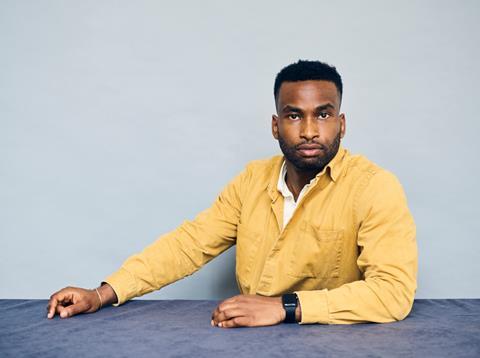
The first thing that BD notices when shown into the room at the RIBA to interview the institute’s new president is the strong smell of stale smoke. It is a suitably grand room, with wood-panelled walls, a lofty ceiling and one huge window overlooking the luxuriously wide street of Portland Place.
The smell is not the result of a past fire, BD’s reporter is assured, but the remnants of countless cigarettes smoked in the room before such indoor practices were made illegal. That was in 2007. There must have been a lot of cigarettes.
The image it conjures up of grey-haired, besuited men in smoke-filled rooms is probably one which the RIBA is keen to shake off. But it is also a very old institution, founded in 1834 with a grandly-worded royal charter.
Its long history is everywhere you look, and these days that is rarely a good thing. To date it has had just three female presidents and one non-white president. Almost all have been members of the architecture profession’s elite – partners and practice leaders, elected at the height of their careers.
But it now has someone who seems like the perfect ambassador to project a refreshed, modernised, more inclusive image to the world. Sitting at the end of a long wooden table beneath oil paintings of past presidents is Muyiwa Oki, a 32-year-old salaried architect with no significant public profile before he swept to victory in last year’s RIBA presidential election.
He said at the time that there needed to be a “mind-shift” in the architectural profession. His campaign, backed by a collective of young architects, students and campaign groups, promised “ethical and progressive change” and a RIBA which would not be afraid to join in with unions to “break the cycle of mental health and labour extortion” in practices.
It was a clear contrast with the more conservative language of his two rivals, Jo Bacon and Sumita Singha, both of whom are RIBA insiders and sit on the institute’s board.
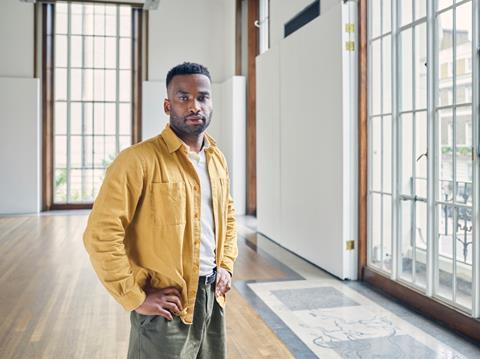
From 11 September, he will be the institute’s first black president, and also its youngest. The election result felt like an important moment for the RIBA, but Oki says it took a while for the significance of the role to sink in. “I didn’t feel it was that huge of a deal,” he says. “And then, slowly and surely, I’m like, ‘oh, it is actually a big deal’.”
Born in Lagos, Nigeria, he moved to London at the age of 11. During his last year at school he did a short internship at Sidell Gibson Architects in London before taking a customer services job at Wembley Stadium. After a stint working as an architectural assistant at Baca Architects, where he produced drawings for planning applications, he went to the University of Sheffield to study architecture.
After his graduation in 2016 he spent around two years at Glenn Howells in Birmingham before moving to Grimshaw, where he worked on the practice’s ill-fated design for HS2’s Euston station. In November 2021 he started as an architectural manager at Mace, and was elected as RIBA president within a year.
From this month he will be one of the built environment’s most important representatives, holding meetings with government ministers and officials, providing commentary on industry news and regulatory developments, and hosting awards like the Stirling Prize, which will be held in October. He will also chair the RIBA council and guide its strategic direction.
His bosses at Mace were unsurprisingly “thrilled” by the result, he says, although they were also surprised – Oki had not told them that he was running. While he had informed his immediate reports – “the people who needed to know” – Mace’s senior directors did not find out until his victory was announced in the press.
Dressed in a crisp white shirt beneath a quilted waistcoat, and with khaki trousers, he does not exactly look like the firebrand that his campaign might have implied. But he is clearly someone who is willing to do things his own way.
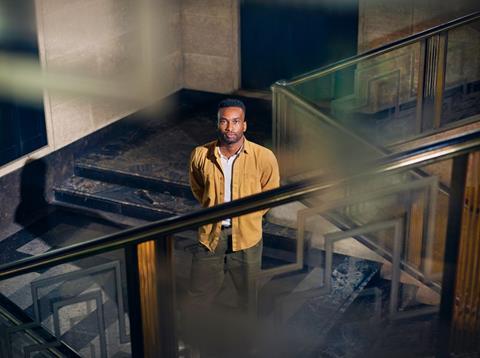
“My main way of operating is, generally, to ask for forgiveness, as opposed to asking permission,” he explains. “I don’t know if [Mace] would have said yes or no. It’s a big organisation, there’s quite a lot of hoops to jump through. So, maybe it helped that I had only been there for a year, so I could feign ignorance.”
After it came to light that one of their number had just been elected RIBA president, the top brass at Mace got in touch with Oki and set him up with meetings with several board directors working in different sectors, all of whom were apparently delighted with the prestige of having a RIBA president in their ranks. He has also met twice with Mark Reynolds, Mace chairman and co-chair of the Construction Leadership Council (CLC), who is keen to do more collaborative work between the CLC and the RIBA in engaging with the government on built environment issues.
Mace has given Oki time over the past year to focus on preparing for his two-year term. Like his predecessors, he will keep his current job, working at Mace on Monday and Tuesday and the RIBA on Thursday and Friday, with Wednesday left as a flexible day depending on where he is needed most.
It will be a strange feeling, BD suggests, to go from a salaried, if senior role – Oki was promoted to to senior architectural manager in April – in the first half of the week to one of the construction industry’s most visible figures in the second half. “What I’ve realised this year is that you can in some ways compartmentalise,” he says. “I’m not super worried about it.”
His new role at Mace has seen him work with public estates clients on refurbishing their buildings across the UK, and he is now moving onto a different project focusing on retrofit and building decarbonisation.
At the same time, for the past year as president-elect, he has been holding twice-monthly meetings with the RIBA’s current outgoing president, AHMM co-founder Simon Allford, who has been showing him the ropes. Oki has also been holding meetings with board chair Jack Pringle and sitting in on council meetings to get to grips with how the institute works. Is it what he expected?
“I’m not really sure what I expected,” he admits, although he says the institute can be “a little bit process driven and procedural in some ways.” This will come as no surprise to anyone who has worked at the RIBA, but it might present obstacles to Oki’s promises of sweeping change during his campaign last year.
The Future Architects Front (FAF), one of the activist groups which supported his candidacy, launched a complaint with the Charity Commission after claiming that the RIBA had attempted to sabotage Oki’s campaign by changing the rules so that fewer new members could vote. The RIBA had responded that the rule change had been under consideration for more than a year and had been introduced as part of an “ongoing process of updating the rules and improving our processes”.
“Obviously, there’s always room for improvement within any organisation,” Oki says when asked how his view has changed now that he has seen inside the institution. “I felt like there is this sense that change is coming and, therefore, we need to embrace it.
“I’ve just tried to be as open and accessible as possible,” he says of the past year. He has given talks at various universities, including a conference at Cardiff University called Productive Disruptive, where he spoke alongside the FAF. He went to a garden party at Buckingham Palace in May, where he met the Prince and Princess of Wales, albeit “from afar”.
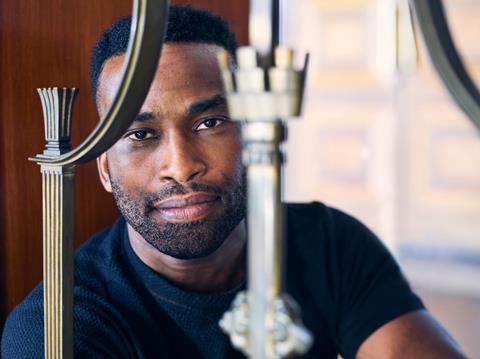
He also took part in a cooking show with Beyond the Box, a community design collective. Oki cooked Jollof rice and fried baked fish, a spicy West African dish that he says is close to his heart. It went down well, he says. “Normally it’s a little bit rough and ready, but I sort of gourmet-fied it.”
Oki is less specific about what he is cooking up at the RIBA, although he sets the general tone. One of the first tweaks he is thinking of making is abolishing the high table in council meetings.
Traditionally the president and honorary secretaries have sat on a separate table to the rest of the council. “I thought maybe we should just all sit together,” Oki says.
It may not be the most significant move but it is on-brand. Inclusivity was at the centre of Oki’s campaign and he said after he was announced as winner that he hoped his victory would be “the start of many great things to come for those who feel disenfranchised and under-represented”.
His wider strategy has three pillars, the first of which is improving health, wellbeing and inclusivity in practices. During his campaign he announced a policy of mandating overtime pay in RIBA chartered practices which, as well-intentioned as it is, might not be the best incentive for struggling firms to renew their RIBA membership. He now admits this is not something the RIBA can or will enforce, but it will be an issue he will “shine a light on and guide practices on best behaviours”.
“I believe, as an architect, your standards should be set by a membership organisation that raises the voice and value of your profession,” he says. “And I don’t think that, if you have higher standards, people will leave. Definitely. Because I think the best architects, the best and brightest, want to do the right thing.”
Oki also quashes the fears of some that he planned to turn the RIBA into a union for architects, something which would require a change in its royal charter. “I don’t think we have any ideas of being a union anytime soon,” he says, laughing. “RIBA is not a union, we are a membership organisation.” But he says it “needs to be seen as an organisation that makes things happen”.
The second pillar of his strategy, scaling up climate action by promoting retrofit, stems from his work at Mace. This is an issue which will only grow in prominence as practices inch towards their climate targets.
Clients are under increasing pressure to look for alternatives to demolition, highlighted this year by Michael Gove’s rejection of Marks & Spencer’s plans to rebuild its Oxford Street store partly because of the scheme’s carbon impact. Oki wants architects to have a bigger presence in the net zero debate and be leaders in the climate emergency.
“If we want to have value as architects with the profession, we need to show and demonstrate and prove that life gets better with climate action,” he says. “And one of the ways we can do that is through the architectural work that we do.”
His third pillar is more bread and butter RIBA, raising the profile of architecture within the wider public. He wants to better communicate the value of the sector, “because that’s what the RIBA does – it represents excellence in architecture, it lobbies and engages with levers within government and other leaders in society, to champion a better architecture.”
None of this is particularly scary, or even radical. The RIBA, it seems, is not going to be demolished and turned into a workers’ collective. It is not even going to become a union. But it does now have someone at the helm who is serious about promoting progressive issues within the confines that the role allows.
Oki confirms that he has no plans to change the RIBA charter, but he will bring fresh eyes to the ageing institute. “And I’m going to be part of that conversation,” he says. “And part of that change.”
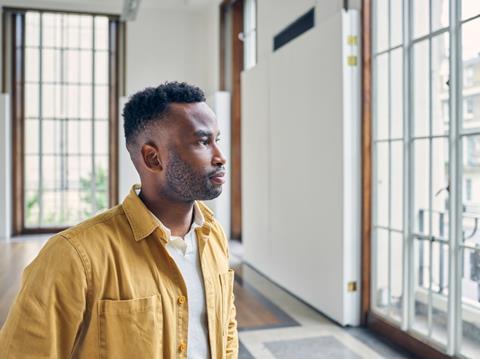


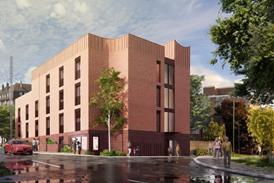
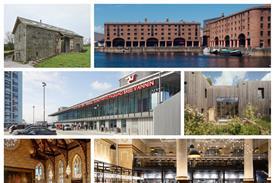
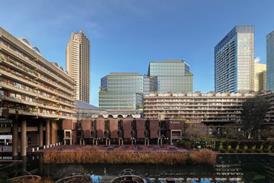
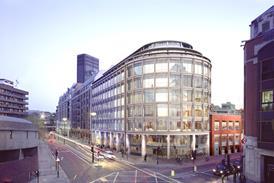










5 Readers' comments